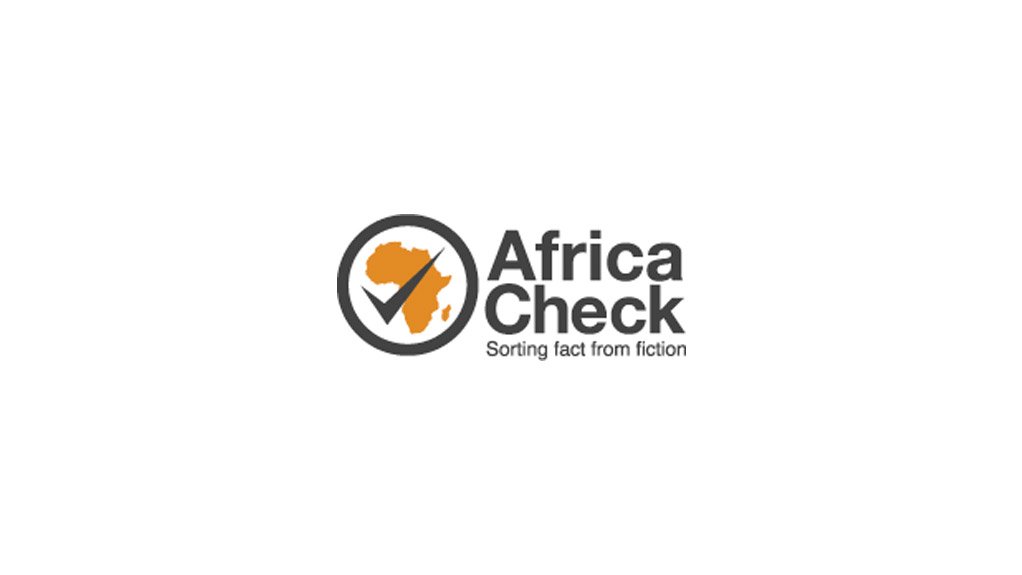Nigeria’s president Bola Tinubu’s frequent and often humorous references to corn on the campaign trail were not lost on observers. But one non-governmental organisation's claims about the crop’s health benefits also stood out.
The Health of Mother Earth Foundation in May 2023 attributed corn with the power to treat respiratory, digestive and other ailments.
The non-profit organisation is based in Benin City, Nigeria, and lists offices in two other African countries. It campaigns on environmental issues.
In this report, we fact-checked four of the organisation’s claims.
A spokesperson for the organisation told Africa Check that it had cited the International Institute of Tropical Agriculture (IITA) as the source of the claim. Health of Mother Earth also shared a research article from 2010 as more evidence.
IITA, also based in Nigeria, focuses on agricultural research. According to the organisation, Nigeria was the largest African producer of corn in 2018, with over 33-million tonnes, followed by South Africa and Egypt. At the time, Africa produced 75-million tonnes of maize.
This data is based on the institution’s own research, a spokesperson said. They didn’t have newer data, but “to the best of our knowledge Nigeria is still the largest producer of corn in Africa”, they said, but could not provide further evidence.
The article from 2010 focused on maize viruses, which it said were poorly understood. It listed the top 20 maize producers in Africa, with Nigeria in first place, producing 7.8-million tonnes of maize annually.
South Africa and Egypt ranked second and third respectively. The source of the data was given as the Food and Agricultural Organization of the United Nations (FAO).
We contacted the FAO for more data and context, but have yet to hear back.
We also asked the US department of agriculture. It referred us to its International Production Assessment Division (Ipad) for data on global corn output.
For the 2023/24 corn marketing year, which runs from 1 September, South Africa is forecast to be the world’s ninth largest producer with 16.8-million metric tonnes, Curt Reynolds, a senior crop analyst, told Africa Check.
Nigeria is 13th, with 12-million metric tonnes.
According to Ipad data, this pattern was repeated in the three previous years, with South Africa being the main corn producer in Africa, followed by Nigeria. While we have asked Ipad for older data, the most recent data does not support this claim.
The Health of Mother Earth Foundation also claimed that boiling corn leaves – the blades sprouting from either side of the stalk – was a remedy for illnesses such as asthma and bronchitis.
Asthma is a condition where the airways are narrow and swollen and may produce extra mucus. This can lead to breathing difficulty, wheezing, coughing and shortness of breath. It is the most common chronic disease among children.
Bronchitis is an infection of the airways in the lungs. Its symptoms include persistent cough, wheezing, shortness of breath, a runny nose and fever.
Can steam from boiled corn leaves cure the two respiratory diseases? We asked Dr Rotimi Adesanya, a fellow at the Academy of Public Health in Nigeria’s capital, Abuja. He specialises in primary care paediatrics and public health.
“For medical practitioners, it's a no. We don't use plants in their crude state, they have to be processed and purified before use and subject to safety tests which is what the National Agency for Food and Drug Administration and Control does.”
“Orthodox practitioners only base our treatments on the outcome of clinical trials,” he told Africa Check.
The National Agency for Food and Drug Administration and Control, or Nafdac, is a government agency that oversees the manufacture, trade, selling and use of regulated products in Nigeria.
We also asked Andrew Chadwick, a consultant respiratory and critical care physician at Oxford University Hospitals in the UK.
“I have never heard of this therapy,” he said. He conceded that he was uncertain, but thought perhaps there was some “sensation improvement” from “the slowing of breathing whilst inhaling the steam”, rather than from the boiled corn leaves.
In another claim, the organisation has said that boiling the corn kernels and then drinking the resulting liquid could be used to treat digestive disorders.
The foundation has not yet responded to our request for more information, including what disorders they are referring to.
Kernels are the hard hulls that surround the moist flesh part of a corn seed.
“Consuming the liquid [from] boiled kernels to treat digestive disorders is wrong,” Emmanuel Ekanem, a professor of paediatrics gastroenterology at the University of Calabar in Nigeria’s Cross River state, told Africa Check.
He said corn is rich in carbohydrates and phytates but it is not a treatment for digestive disorders.
“Corn is food and should be eaten as food. You have digestive problems, go to a hospital for proper diagnosis and treatment.”
Olufunke Faluyi writes about healthy eating, nutrition and herbal medicine for Punch, a national daily newspaper in Nigeria. She told Africa Check that, as far as she knew, it was the corn silk, not the kernels, that aided digestion. “Corn silk is the shiny thread-like, weak fibres that grow as part of ears of corn.” (Note: Africa Check has previously looked into claims around corn silk.)
Traditional Medicinals, a US-based medicinal herb company, told Africa Check that boiled kernels were not an ingredient in any of their products.
We have asked others with knowledge of traditional medicine about this use of boiled corn kernels, but the available evidence does not support the claim.
This is another unproven claim, Dr Folake Cole-Adeife, a dermatologist at the Lagos State University Teaching Hospital, told Africa Check.
Corn paste is not a treatment for skin diseases and wounds, she said.
“This is not a conventional medical treatment. Also, applying corn paste on wounds can serve as a feeding ground for bacteria."
Written by Motunrayo Joel, Nigeria deputy editor/health researcher
EMAIL THIS ARTICLE SAVE THIS ARTICLE ARTICLE ENQUIRY
To subscribe email subscriptions@creamermedia.co.za or click here
To advertise email advertising@creamermedia.co.za or click here











